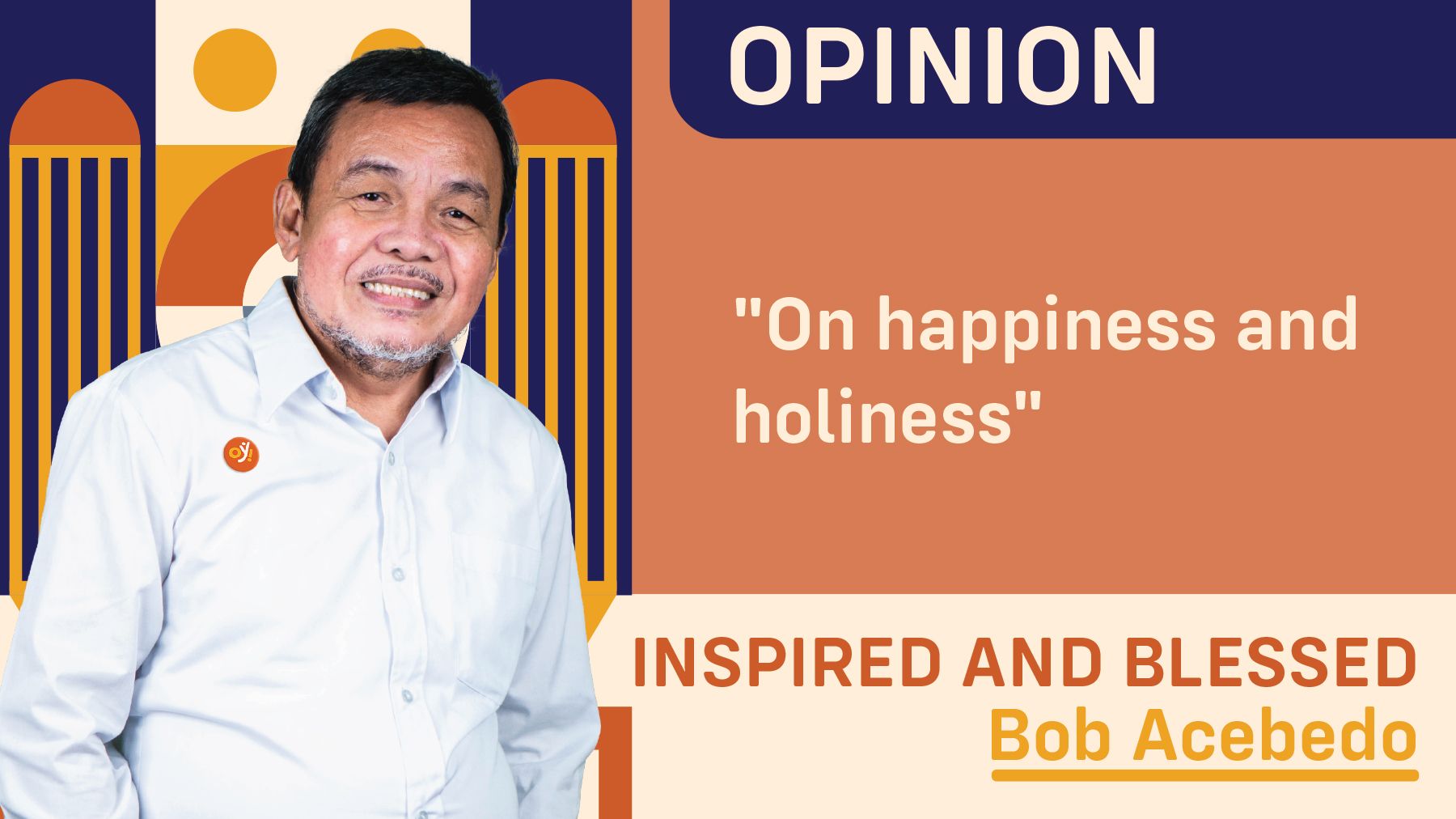Ponder so, do holiness and happiness make a good mix? Can we be happy even without being holy? Or the reverse, can we be holy and yet not happy?
Let’s start by defining or clarifying our understanding of happiness and holiness.
Happiness, in its generic sense, is the subjective experience of well-being, characterized by feelings of joy, satisfaction, contentment, and fulfillment.
On the other hand, holiness (viewed from my Christian perspective) is integrating oneself with God, with Christ particularly, and entails following the “path”, commandments, or will of God or Christ. Take note, hence, holiness is not simply “piety”. Holiness requires not only “prayer exercises” but “living up” or “doing” God’s commandments. Simply put, holiness is accepting, experiencing, and living (or “doing”) God’s PRESENCE in our life.
Profoundly so, both holiness and happiness are a choice.
According to Catholic author, Amy DiMarcangelo, in her book “A Hunger for More: Finding Satisfaction in Jesus When the Good Life Doesn’t Fill You”, there is no dichotomy between holiness and happiness, adding that the two were never intended to be pitted against each other.
DiMarcangelo writes: “The popular Christian adage that ‘God is concerned about your holiness, not your happiness’ creates a false dichotomy. God actually cares very much about our happiness. Growth in holiness increases happiness. (And) to believe that holiness involves the sacrifice of happiness is to deny the goodness of God’s law. Such denial dishonors God. Submitting to his commandments, statutes and rules should bring us delight”
Well said, indeed, following God’s commandments provides happiness – not temporary, but lasting happiness.
Yes, in answer to our earlier query, it is possible and in fact easier to indulge in happiness borne out of sensual, material, or even sinful pleasure – but this is obviously temporal. On the other hand, the pursuit of holiness involves displeasure or sacrifice – yet it offers infinite happiness.
DiMarcangelo has this to say: “More holiness is more happiness. This, of course, doesn’t mean the pursuit of holiness won’t involve sacrifice. Crucifying our flesh is painful. It’s easier to indulge greed than to fight it. It’s easier to have a loose tongue than to bridle it. It’s easier to feed bitterness than to absorb the cost of forgiveness. However, none of this means God calls us to sacrifice happiness for the sake of holiness. Though in the moment of temptation it feels as if we must choose between the two, we’ll ultimately find that every choice to pursue holiness results in more happiness, not less.”
On the other hand, the happiness that is obtained from holiness, though not immediately felt, is loftier or more sublime than sensual or sinful pleasures. DiMarcangelo continues: “Giving money away always leaves me happier than hoarding it. Biting my tongue always leaves me happier than the sting of regret over rash words. Using my time to serve others always leaves me happier than being self-consumed. Engaging in spiritual disciplines always leaves me happier than neglecting them. This fruit of happiness is rarely immediate though, but habits of holiness ultimately lead to deeper happiness.”
In sum, hence, DiMarcangelo clinches the thought that happiness obtained in following Jesus may cost everything, but it offers infinitely more:
“Following Jesus costs everything, yet it offers infinitely more. It is giving up our vain obsession with appearance for the greater beauty of Christ. It is giving up sexual impurity – even if that entails a life of celibacy – for the greater intimacy of knowing God. It is giving up power and fame for the greater glory of being called children of the Father. It is striving after love, peace, kindness, and goodness for the greater reward of life in the Spirit.”
Profoundly said – no doubt about it.
#WeTakeAStand #OpinYon #OpinYonColumn #ColumnbyBobAcebedo #InspiredandBlessed
